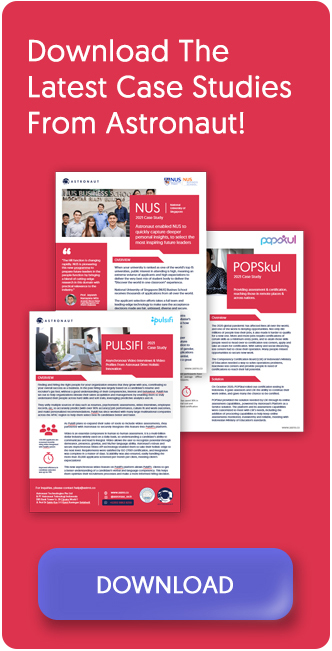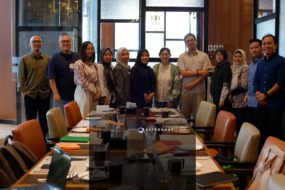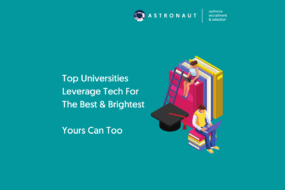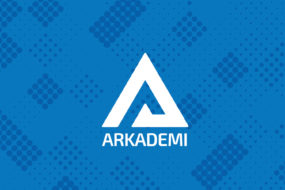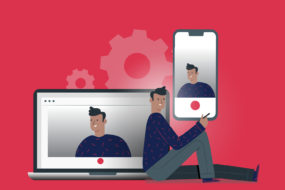
The COVID-19 pandemic has impacted the world’s markets and has also crippled the education system. 90% of the world’s primary, intermediate, and tertiary students are unable to return to school. The impact has been transformative as educators demand innovative solutions to enable remote teaching and learning. However, digital transformation in the education industry is not constrained to post-COVID-19 online education and learning. This is an essential observation for higher education institutions to understand as the world strives to be more efficient in delivering results for their ‘consumer.’
Emerging technologies such as virtual and video-assisted learning, VR and AR robots, chatbots, the Internet of Things, and blockchain for data security and certification are already being employed in educational contexts. The adoption of new technologies will continue to influence how people access, use, and receive an education. Making it easy for everyone to study anywhere and gain an advantage in an increasingly global competition.
Admission is a lengthy process. Students must wait in line to do exams and apply for admission. Also, students must often check the university to see how their selection process is progressing. On the administrative stage, the admissions staff must analyze files, confirm credentials, enlist students, and keep them informed of the status of their applications. However, digital transformation can assist to shorten the amount of time that universities and students must spend throughout the admissions process. Astronaut technology automates the university admission process which is accessible to anyone. Now, your candidates can take assessments and interviews on mobile. Since Gen Z and millennials are more likely to interact with the world through their mobile devices, this approach will likely be favored. It is advantageous to admissions staff since it shortens the procedure.
Adoption of Technology in Education
National University of Singapore (NUS) and Kognisi.id (Kompas Gramedia) are examples of two institutions that have adopted technology as a solution for their needs. During the pandemic, NUS adopted an optimized contactless admission process, this is an initiative to assist students in being educated while they are safe at home. The adoption of university candidate selection technology has proved to optimize applicant process time four times faster.
Another benefit of adopting applicant selection technology is the reduction of faculty time spent on selection interviews. NUS professors spend less time conducting interviews as it lets them review pre-selected asynchronous interview videos on their own time. Faculty time is a precious commodity in universities and higher education. Applicant selection technology has now become a standard for NUS student admission, as automation has made it more dependable, optimized, and pleasant for both candidates and faculty end users.
Kompas Gramedia made every attempt to upskill its employees throughout the pandemic. An E-learning platform where employees can acquire new skills while they are at home was the solution they adopted. Employees may study from anywhere with digital learning, improve themselves and be ready to adapt for the future of the company. We contribute to the ongoing growth of the Kognisi.id platform, which has matured into an open knowledge marketplace. Kompas Gramedia sees the problem of learning during the pandemic when many of us are not able to get an education outside of our bedroom, Kompas Gramedia transforms Kognisi.id then it becomes an ecosystem that helps individual and organizations to grow and be the best version of themselves where Kognisi aims to the facilitator that assists them to develop their uniqueness (idiosyncrasy) by strategically using technology and science-based method. Now, everyone who wants to upgrade their skills can do it anywhere. With a growing learning library, Kognisi successfully optimized learning experiences that promote comfort and flexibility with the help of experts that share their knowledge and can be accessed by millions of users.
The pandemic also impacted the skill certification industry. Indonesia’s Board of Skill Competency Certification or LSK under the Indonesian Ministry of Education, adopted online certification technology to be able to test and certify individuals that needed them for job or study applications. Under the POPSkul platform powered by Astronaut, they were able to do so. Not only did it solve the problem of those needing certification during the pandemic, but it also solved many other unaddressed problems.
The platform enabled assessors and LSK to continue their work online and provided many with the opportunity to be certified. The adopted technology has democratized certification fees as online means no more additional costs such as travel and boarding expenses for accessors, even in rural places. As for technology, the need for certification has set a new standard in security to meet the standard requirements of the Indonesian Ministry of Education such as proctoring and data security that meet ISO standards.
Plotting a Roadmap for 2023
NUS, Kognisi, and LSK are examples of how Astronaut technology has been adopted and implemented successfully in the education sector. We have assisted key stakeholders in the business in acquiring exceptional talent through automation and streamlining the hiring process. We build our product around the experiences of helping businesses to adopt the technology.
To further provide exceptional services to our respected clients, it is inevitable for us to cross paths with universities and higher education to provide a future talent pool of fresh graduates. Plotting out a roadmap for 2023 is crucial that we identify and understand the challenges that universities and higher education face, what are the pain points, issues, barriers, and insights. Astronaut will be present at GESS (Global Educational Supplies and Solution) in Jakarta from September 14 to September 16. We will be there to gather the insights we need to build a roadmap that would help us create the best solution to enhancing the education ecosystem in Indonesia and Asia. Join in the conversation by taking a short 2-minutes survey here.

